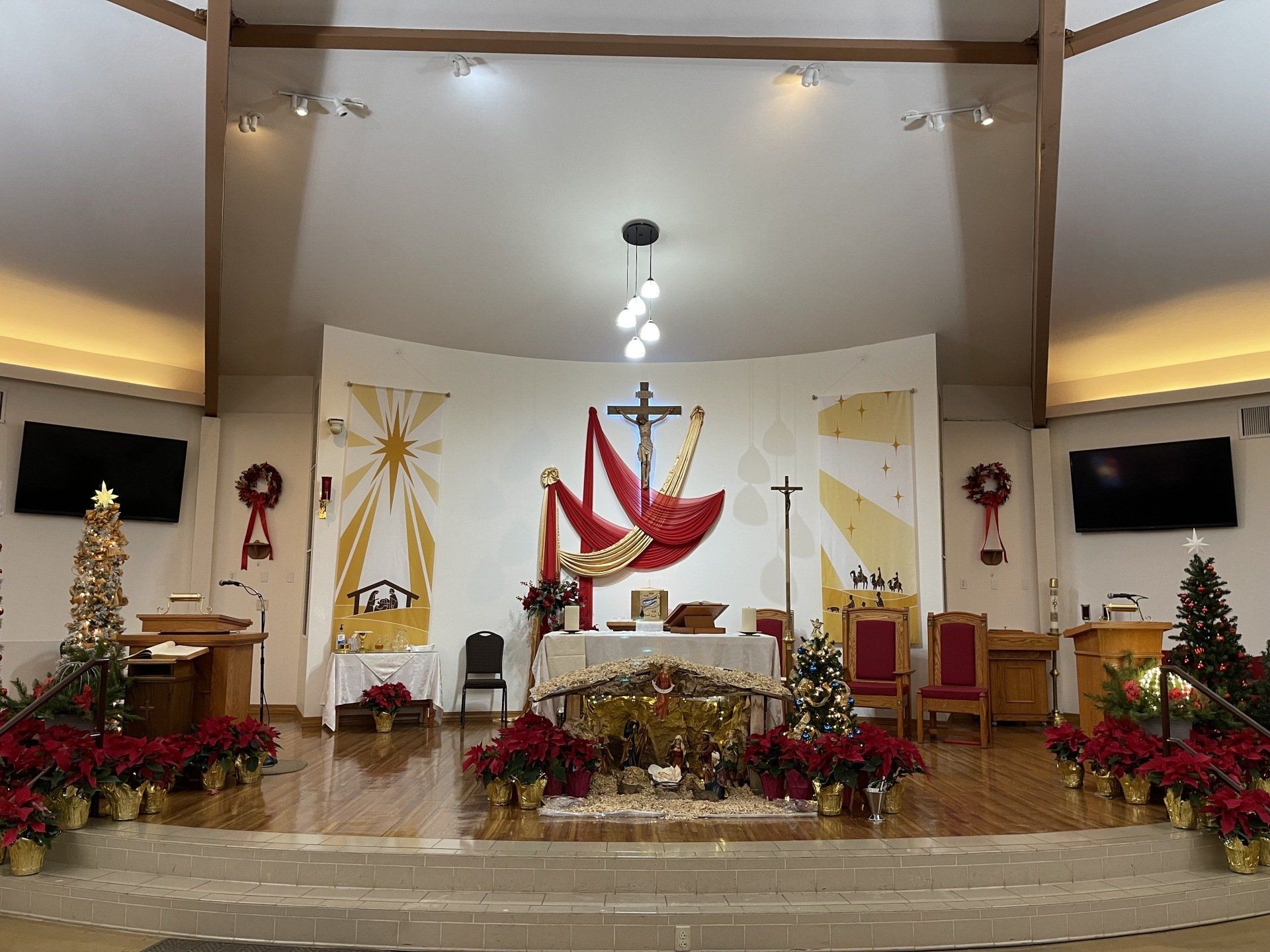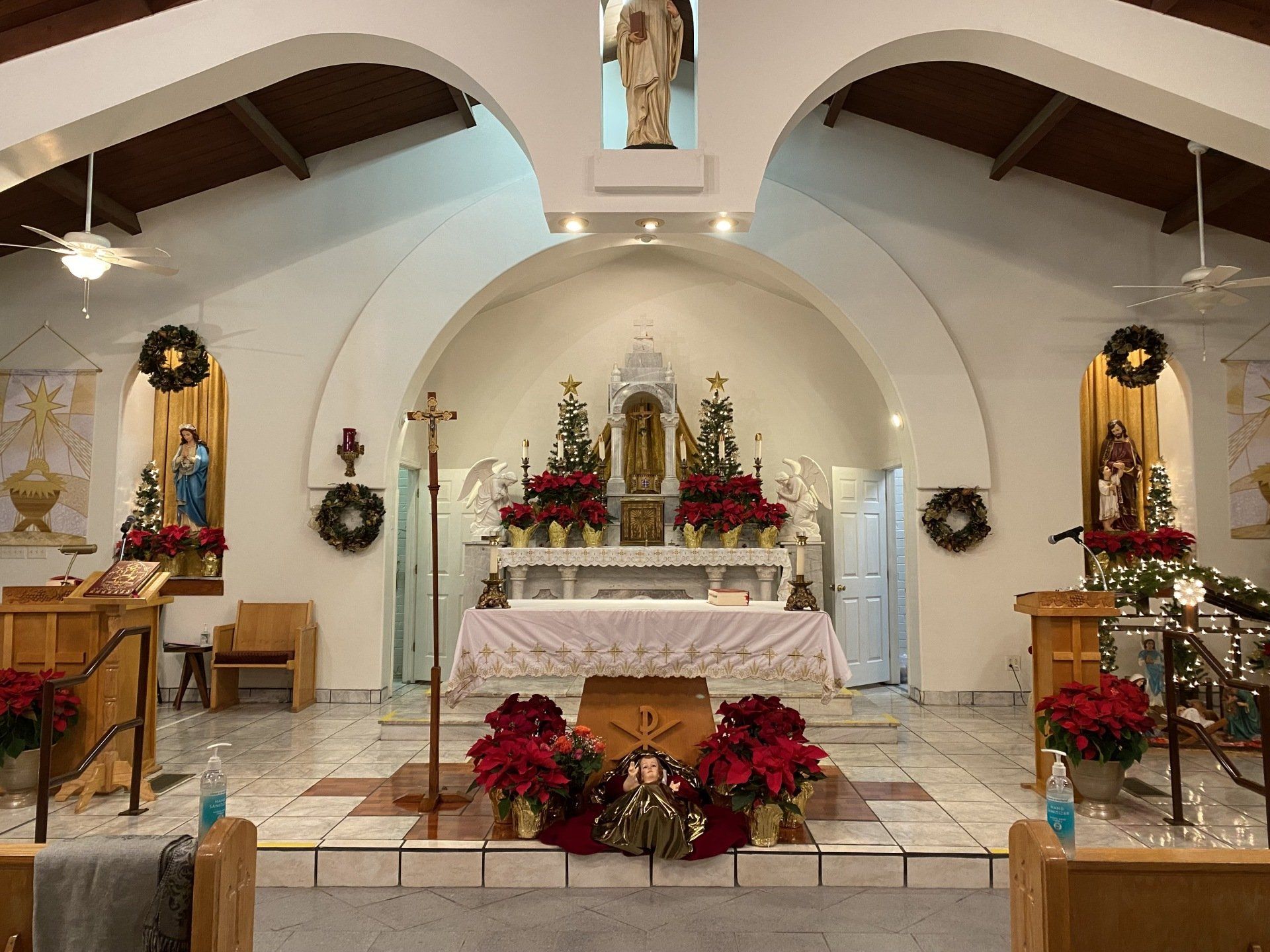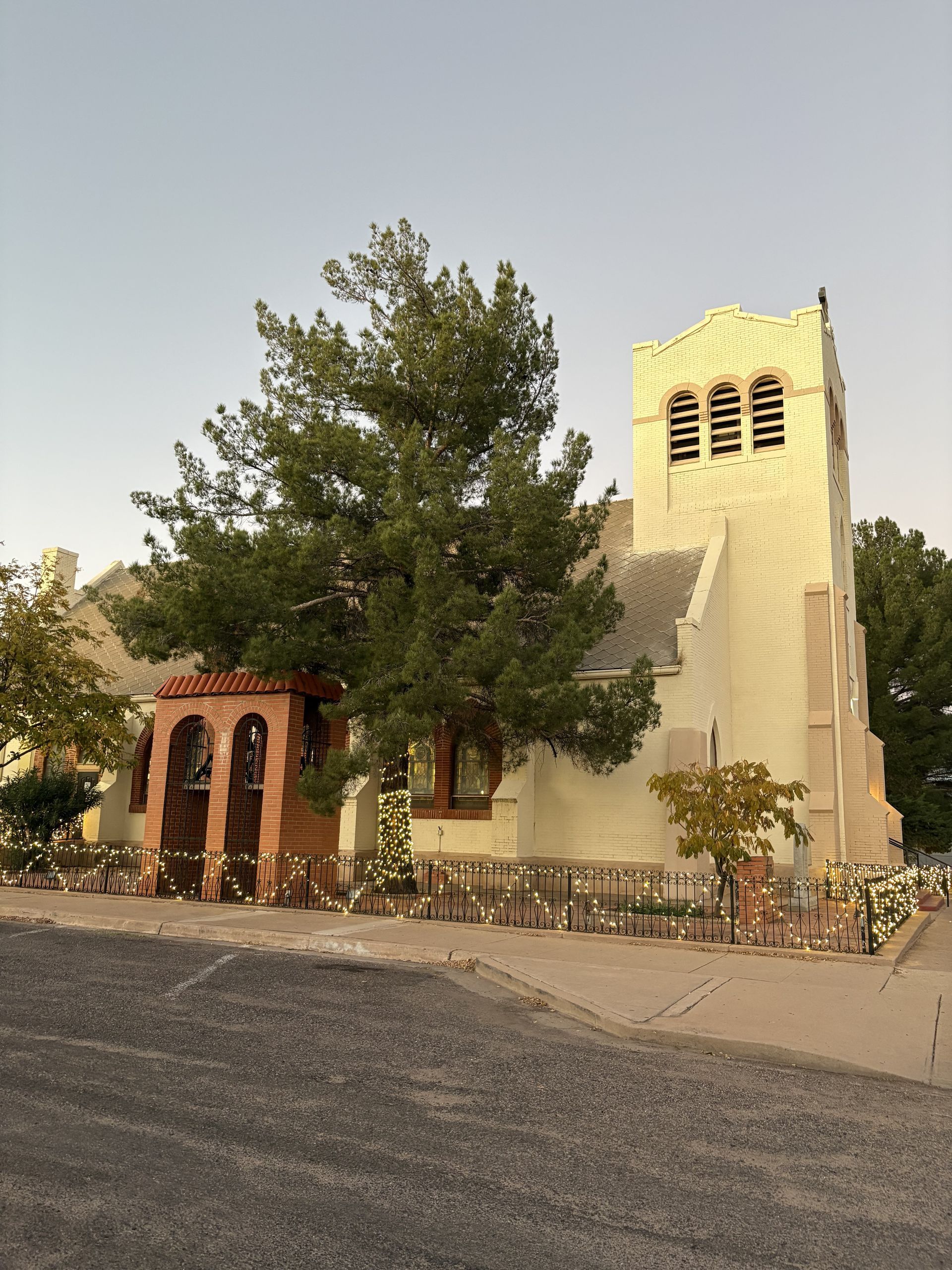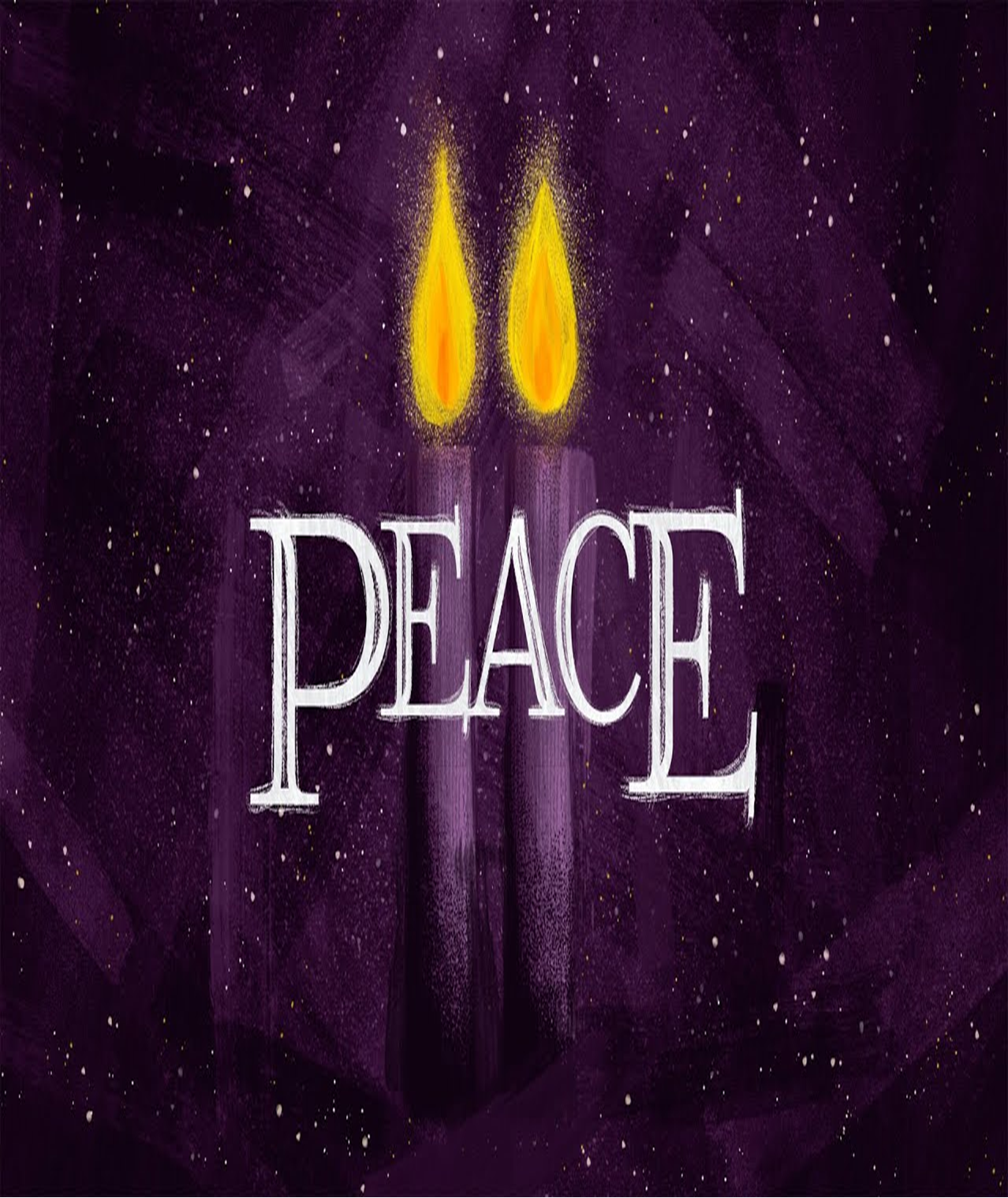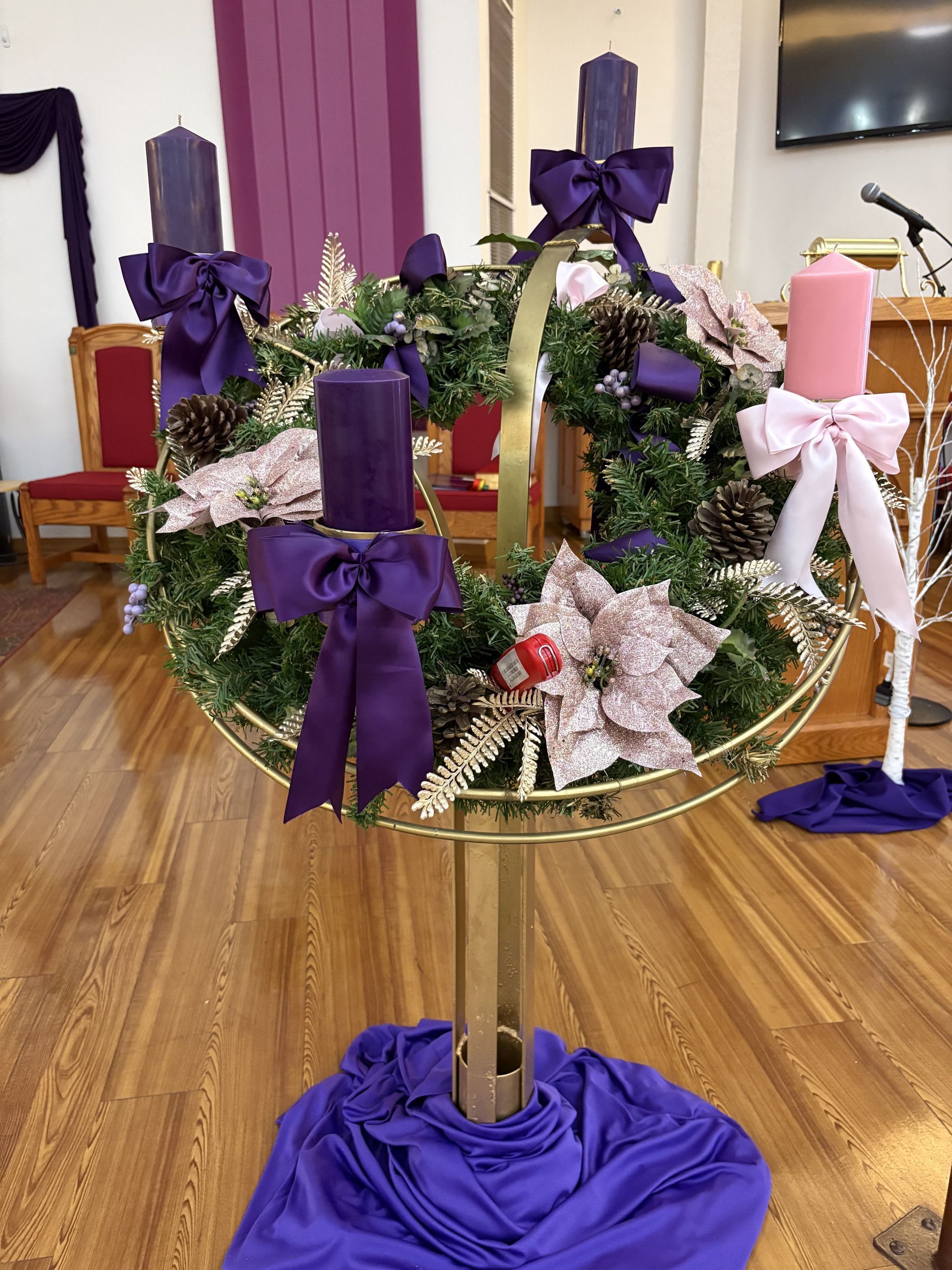"And the word became flesh and dwelt among us" (John 1: 14).
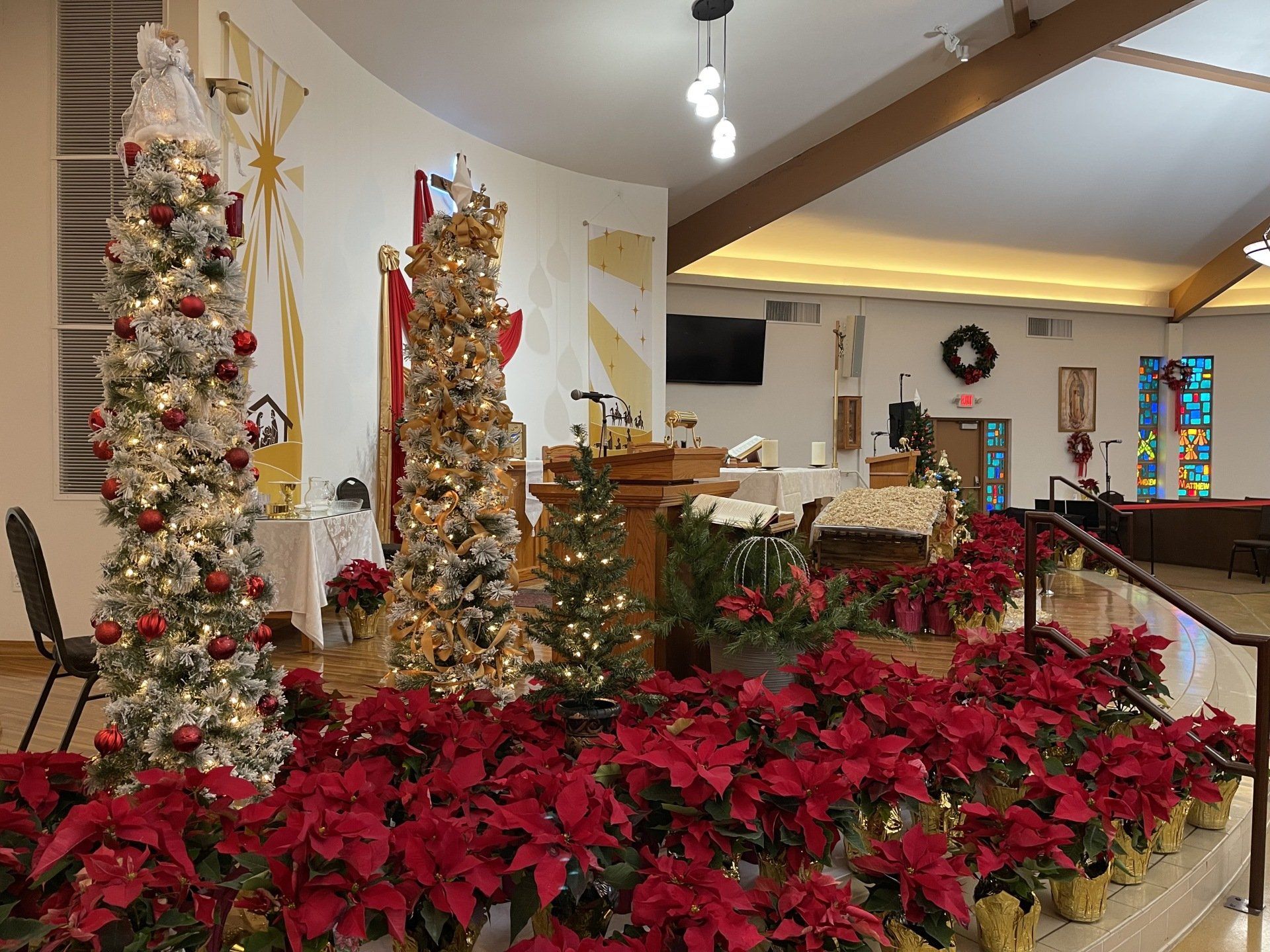
Following the homily, everyone stands for the profession of faith (Nicene Creed). At the words, “And by the Holy Spirit was incarnate of the Virgin Mary, and became man”, the congregation adore God (all kneel). The mystery of the incarnation of God is the heart and soul of the creed. It holds the creed together. On Christmas, we don’t simply celebrate the birthday of our savior for birthday’s sake. The word became flesh (Et Incarnatus est) means that God forced his way among us. The distant and remote God becomes Emmanuel – “God with us”. On Christmas, we don’t simply celebrate an event in history. The living God (Absolute) in whom we profess faith and total dependence has been making his way among us. At the profession of faith, we recite with great fervor and belief the mystery of the living Triune God, the God who entered time. In the days leading up to Christmas, we paid so much attention to the lowly and humble woman who said yes to God’s invitation. Without her, we won’t be here. We cannot imagine the incarnation of God in the flesh without Mary. She is an indispensable part of the divine plan. God needed her to carry out his plan/promise of uniting word and action. By saying yes, Mary made herself available (her whole life) as God’s dwelling place in the world. Because of the incarnation of God in the flesh of Jesus Christ, the Son of God, Christianity is a unique religion. No religion the world has ever known has the same claim as Christianity. It's not a product of cultural development and societal advancement. It is divine revelation. If cultures (ancient and modern) can't come into terms with the incarnation, so be it. I don't think it is meant to be fully understood. In a way, singing Christmas carols/songs is the best way to approach the mystery of God made man. There is something in music that plain speech/mere words cannot express. Music takes us deep in the realm of the inexpressible.
Because of the heightened level of liturgical celebration, there are assigned readings for the Vigil, Midnight, Dawn, and Day Masses. What they offer us are the various characters and figures in the crib which we are all familiar. For example, the angels and shepherds are taken from Matthew’s Gospel while the wise men and the star from Luke’s account and the ox and the ass from the beginning of the book of Isaiah. The nativity scene is crowded which depicts us, the gathered assembly coming from all over the place.
At the Vigil Mass, we listen to the gospel of Matthew who presents the ancestry, the family tree, the origins, that is, the genealogy of Jesus – David’s promised heir. It helps us to meditate on the background of Jesus which include men and women, saints, and sinners and anything in-between. For some, family is a source of joy and life. For others, nothing but pain, embarrassment, and suffering. Wherever you find yourself in the equilibrium, know and remember that even the human ancestors of the Son of God had shady background which tell us that God will force his way to us regardless of the circumstances. God will come even in the worst case, troubling story and problematic scenario and touch us at the depths of our lives. Matthew provides us with three sets of fourteen or six sets of seven starting with Abraham - David – Joseph, the husband of Mary, the father of Jesus, the Messiah, the promise, and the fulfillment of the prophecy. After this, he stressed the unexpected role of Joseph to take care of Mary and the child to be born whose name is Jesus (God saves), destined to save his people. At the Midnight Mass, we turn to the Lukan version who provides us the census/enrollment whereby Joseph and Mary travelled to Bethlehem (house of bread), David’s town to register. Joseph visited his hometown. Welcome Home to all of you! It was homecoming for Joseph and the family. On Christmas, we visit our spiritual home even just for one day. It was at that time when the baby was born in a cave in the manger. At the Dawn Mass, we hear about the shepherds (Luke 2: 1-14) who were probably up all night, the first to welcome the Word made flesh. Ironically, the simple people those belonging to a despised and deprived social class were the first to visit and know about the inbreaking of God in the world. The Mass during the day presents us with John’s prologue, the word made flesh and dwelt among us, the timeless/eternity entered time. In the beginning is God’s word which has the primacy over anything in religion, faith, and life. There is nothing like this. God pitched his tent among us. It looked like temporary, but it was permanent. The incarnation is not a result of cultural interpretation. It didn’t come from cultural belies. It could only come from God alone. That’s why, this is very difficult to understand. The ineffable humbled himself to be born in our flesh. Expecting the unexpected. God is in the flesh. Wherever we go, he is with us. That’s why we place the nativity scene (our little Bethlehem) to trace the footprints of Jesus.
Once I visited a brother priest’s rectory. When I was parking in the driveway, I started hearing barking of a dog. I said to myself, my overnight stay was going to be a long day for me. There was nothing I can do. Douglas was on the other side of the world. You just have to live with it. As soon as I got in, the creature smelled and jumped all over me. I didn't like it. When my brother priest showed me the room, the dog followed me and in fact, entered the room first, made an ocular inspection making sure his boss' guest is safe. In the morning, while I was laying on the couch watching movie, the obnoxious creature jumped all over me. Sensing that I was scared, he settled down, stayed beside me and rested on my flipflops. I filmed our monologue. The priest caught our conversation. And commented, my chihuahua wants to befriend you, but you don’t want to. He wants to play with you but you ignore him. On Christmas, God wants to live in every fiber of our lives. God is in the flesh. On Christmas, God wants to seriously befriend us but quite often, we are scared even of the small child. God came in our flesh to live among us. God did everything possible even to be born of our flesh to enter our world.
Everything we do is an imitation of the words of Mary, “let it be done to me according to your word” that is, invite God to come in and have his way. Although the birth of the Son of God, the savior of the world, is not without any controversy, Christmas is a celebration with an outburst and explosion of joy. Amen.

